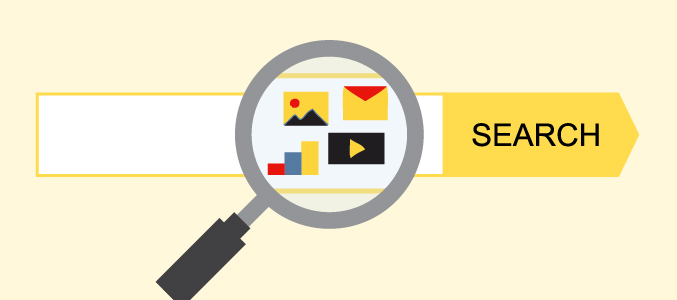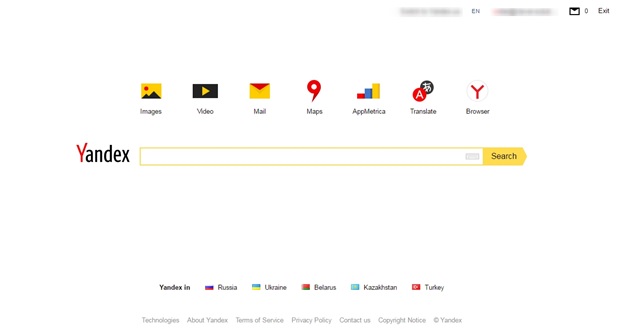
Next week, Majestic will be sponsoring the Yandex Expert Summit which takes place on the 22nd June. In light of this sponsorship, we wanted to give you an overview of the search engine and explain how you can optimize your site for Yandex in a two part series.
In this article, I will explain why you need to target Yandex if you are promoting your business in the Russian market
In a world dominated by Google, targeting another search engine may seem pointless and a waste of resources. Google controls huge markets in the USA, the EU, India, Brazil and pretty much the rest of the world. So why bother going after other search engines?
Having Google under your belt is more than enough in most cases. But if you plan to promote your business in, say, Russia or China, Google is not the ideal search engine to use. These enormous markets are actually dominated by other search engines — Yandex and Baidu, respectively.
What You Need to Know About Yandex
To begin, it’s important to point out that Yandex isn’t just a search engine. It’s a multinational IT company that offers a wide variety of B2B and B2C services and products including:
- Yandex Browser
- Yandex Mail
- Yandex Maps
- Yandex Disk
- Yandex Taxi
- Yandex Translate
Here’s what the Yandex homepage looks like:
The plethora of services offered guarantees Yandex Search (the name of Yandex’s search engine) receives dozens of millions of visitors every day. Today, over 60% of internet users in Russia rely on Yandex to search online.
It’s also worth mentioning that Yandex is a pretty prominent search engine among Russian-speaking communities in Belarus, Ukraine, Kazakhstan and Turkey, and is the fourth largest search engine in the world according to comScore.
Taking these facts into account, let’s move on to Yandex SEO.
Google vs. Yandex: Key Differences
Fundamentally, Google and Yandex aren’t that different and if you are good at optimizing your site for Google, Yandex SEO won’t be hard to master. However, there are some differences you should be aware of. Here are the most crucial differences between the two search engines:
#1 Local SEO
One of the most prominent differences between Google and Yandex is that the latter is more geo-dependent. Users from different regions and cities will almost always see different results in a search.
In Google, geo-targeting plays an important role as well, but search results aren’t that region-specific. For instance, if you are searching for a physical therapy clinic in NYC, you would have to type “physical therapy clinic nyc” in the search bar to achieve the desired result.
In Yandex on the other hand, your NYC-based IP will do the job for you. Typing in “physical therapy clinic” is more than enough to receive region-specific results on page one. Arguably, this makes Yandex a better option for local SEO searches than Google. On the flipside, it is more difficult to target multiple locations on Yandex.
Note: Google does not do a good job of targeting specific regions in CIS countries. For example: if you want to do business in, say, Kiev or Odessa, you will have to target the entire country of Ukraine because Google views it as one single region. In this instance, Yandex is a wiser choice for search engine results.
#2 Link Value and Link Building
Links still play a key role in determining how websites rank in Google but this does not seem to be the case with Yandex. While the Russian search engine does not devalue links entirely, it prioritizes user behaviour factors and actual traffic to determine rankings.
Let’s imagine your site receives a backlink from the Majestic blog. How will this influence rankings in Google and Yandex?
Google will focus on the blog’s authority, link profile and traffic in order to calculate the link’s value to the targeted page.
Yandex, however, may not honour the link until it pushes traffic to the targeted page. If nobody clicks the link, it is viewed as useless no matter how trustworthy the resource is. What you need to remember is that this feature doesn’t apply to websites without the installed Yandex.Metrika tool.
Note: Don’t obsess over organic traffic. Yandex takes into account a variety of user behaviour factors to determine if a particular link provides real value. For instance, if users click the link to access your site and it bounces back, the link won’t be counted as a high-quality one.
#3 User Behaviour and Engagement Metrics
Yandex is absolutely obsessed with user behaviour, and poor engagement metrics such as bounce rates and the average time on site can make or break your SEO campaign.
Google also takes engagement into account but nowhere near the same extent as Yandex does. The Russian search engine is adamant that websites with better engagement should rank higher in SERPs than sites with poor engagement.
Note: Yandex takes into account how users behave not only on your website but also after they visit it. If users continue to click on query-related pages after visiting your site, it signals to Yandex that your website didn’t provide enough value to the user in the initial visit. No value added means a lower ranking.
#4 Domain Age and Authority
This one is simple. For Yandex, domain age means authority. Acquiring high SERPs for a newly registered site is fairly difficult. This is especially true in highly competitive niches such as retail, law, medicine and ecommerce.
#5 Content and Antispam Methodology
Content quality is important to both Google and Yandex, but the latter applies a much stricter policy especially when it comes to duplicate content, over optimization and spam. Algorithm updates like Minusinks and Baden-Baden can help Yandex streamline this process.
In both cases, content is still king. Put out high-quality content and avoid over optimization to achieve strong rankings on both search engines.
#6 Usability, User Experience and Other Ranking Factors
Website design, usability and user experience have a huge influence on SERPs in Yandex, especially for queries with so-called “commercial intent”. Yandex demands that all ecommerce sites provide a high-quality search experience to their visitors. This translates to providing customers with convenient contact forms, smart search filters and easy-to-use shopping carts.
Google’s approach to UX is a little bit different. It doesn’t demand anything specific but prioritizes usability-related factors such as site speed, mobile optimization, website structure and the use of structured data. Though all of these factors are also relevant to Yandex, the Russian search engine is much more concerned about the overall quality of service.
#7 Optimization Time
Google is a powerful search engine with dozens of data centers supporting its performance all over the world. Yandex doesn’t operate with such capacities so, naturally, it takes Yandex a while to crawl and index changes on sites within its network.
As you begin working on your Yandex SEO, prepare to wait several days to a month before seeing a notable difference in your SERPs. No matter what type of major update, just be ready to wait awhile before the results come flowing in.
#8 Focus on On-Page Optimization
As I mentioned above, Yandex is a strict search engine. Not only are the rules tough, Yandex is also not as smart as Google. As a result, Yandex often punishes for mistakes that aren’t really that serious (e.g. invalid bits of HTML and CSS).
Remember: Yandex is very serious about on-page SEO factors. Make sure that your site’s code and structure, titles and metatags, descriptions and meta descriptions, content and URLs are as clean as possible. Even a single error on a particular page can dramatically drop your website’s rank by 10-20 positions.
#9 Russian vs. English
Finally, there is a difference in language preference between the two search engines. Google is better at crawling and indexing sites in English, while Yandex is unrivalled in indexing sites in Russian.
If your goal is to target English-speaking audiences in the CIS and you plan to put out content in English, stick with Google. If Russian is your targeted language, choose Yandex instead.
- 5 things every SEO specialist should know about JavaScript - December 12, 2018
- How to Optimise Your Site for Yandex part 2 - July 13, 2017
- How to Optimise Your Site for Yandex part 1 - June 15, 2017









Some great tips there and I am looking forward to part 2… but Yandex brought back links as a ranking factor, some time after the article you cited. From the same website: http://searchengineland.com/russian-search-engine-yandex-to-bring-back-links-to-their-ranking-algorithm-218815
June 17, 2017 at 8:18 pmThanks for the comment, Dixon. The article was written some time ago, so it does not take into account the most recent changes in Yandex algorithm. And as to links, they are never too discrete about them. I mean, they can say a lot but it can be working pretty the other way around in reality.
June 28, 2017 at 1:15 pm> if you want to do business in, say, Kiev or Odessa, you will have to target the entire country of Ukraine because Google views it as one single region. In this instance, Yandex is a wiser choice for search engine results.
Keep in mind that Yandex is blocked in Ukraine so don’t spend much time deciding on targeting city/country 🙂
June 20, 2017 at 1:10 pmYou are right, Vladimir. You cannot use it much in Ukraine now, after all the blockings and stuff. Yet, it is still a viable option for Russia.
June 28, 2017 at 1:14 pmI had the chance of attending the conference in Berlin http://www.prunderground.com/digital-marketing-giulio-gargiullo-at-yandex-expert-summit-in-berlin/0096611/ and I have to say it was really eye opening about search, advertising and in general about AI. You soon can find on Yandex site the presentations from the conference.
June 23, 2017 at 4:54 pmI was there!
June 28, 2017 at 11:41 amThanks for the comment, Giulio.
Yandex does a lot, it is true. Some of its features are better than Google’s. For instance, I really love built-in heatmaps and video sessions. And yes, they plan to do great stuff with AI.
June 28, 2017 at 1:18 pmQuite an informative article. This has given few ideas and areas of improvement to us. Thanks and keep writing. We are surely going to use this for optimizing our web site peppersmile.com
July 14, 2017 at 1:31 pm